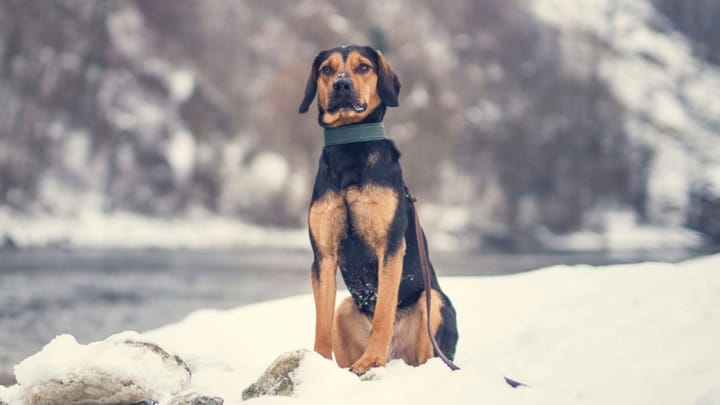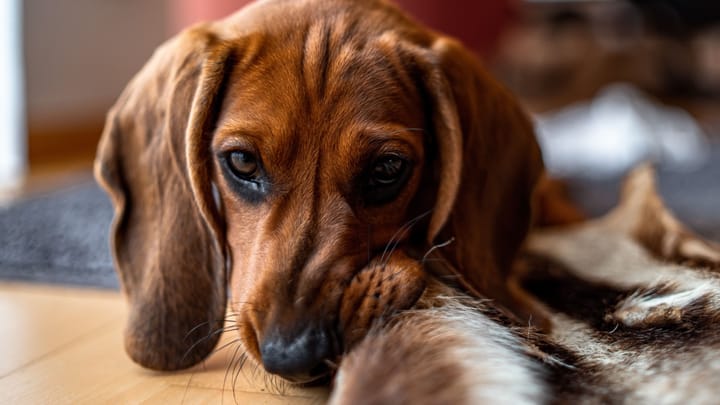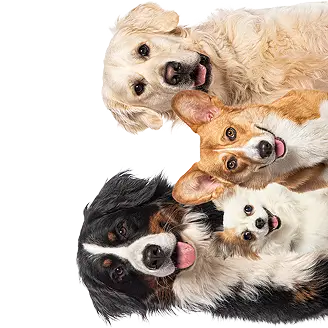Tyrolean Hound
Other names : Brachet Tyrolien, Austrian Brachet, Running Dog from Tyrol, Tiroler Bracke, Tyroler Bracke


The high spirited Tyrolean Hound is always full of life, even when he’s not hunting. Even as a working dog, he is also an all-round family dog too. This breed is often used as a watchdog in their native country, Austria, yet his lack of any aggressive qualities means he’s certainly not an effective guard dog. An added advantage to his hunting skills is his ability to follow the scent of his prey, even through heavily wooded or mountainous regions.
|
Life expectancy |
The Tyrolean Hound has a life expectancy of between 11 and 13 years |
|
Temperament |
|
|
Size |
Medium
|
|
Adult size |
Female
Between 17 and 19 in
Male
Between 17 and 20 in
|
|
Adult weight |
Female
Between 40 and 44 lb
Male
Between 40 and 44 lb
|
|
Coat colour
Red, red-deer to red-yellow, black, fire (blck with fire-like marks on head, belly, chest and limbs), or tri-colour. |
Black Red |
|
Type of coat
The Tyrolean Hound sports a short, thick, dense and double-coated hair, coarse and not fine. |
Short |
|
Eye colour
Dark brown |
Brown
|
|
Purchase price |
The Tyrolean Hound costs between £400 and £500 |
A Tyrolean Hound generally gives birth to 6 to 8 puppies in each litter. This is quite a high number for a working hound dog of this type.
More details about the Tyrolean Hound
Tyrolean Hound: Origins and history
This breed is thought to be a descendant from the ancient Celtic canine family, with ancestors dating back to the 16th Century. Documentation reports that the Emperor Maximilian I owned one of these hunting dogs. Around 1860, one of the very first Tyrolean Hounds was noted in its home country, Austria. These canines were recognised as a breed in 1908, then in 2006 they were accepted by the UK Kennel Club in the scent hound registry. Although still very popular in his home country, Austria, the Tyrolean Hound is sometimes found in other countries within Europe, mainly as a working dog.
Physical characteristics of the Tyrolean Hound
A medium-sized dog with a robust constitution. His body is a rectangular shape with a slightly domed, broad skull. With flat ears, dark brown eyes and a straight, long tail. Females of the Tyrolean Hound are usually smaller in size, however both sexes are fairly muscular.
FCI classification of the Tyrolean Hound
-
Group 6 - Scent hounds and related breeds
-
Section 1 : Scent hounds
Tyrolean Hound: Characteristics
Tyrolean Hound: Behaviour
Training a Tyrolean Hound
On the whole, the Tyrolean Hound is relatively easy to train. He needs a consistent and firm hand from his master. As with most hounds, he might be somewhat stubborn at times.
Tyrolean Hound: Lifestyle
Breed compatibility Tyrolean Hound
Tyrolean Hound: Purchase price
After your initial purchase of the hound, on average between £400 to £500, expect a monthly budget of £50 to £80 for his food, insurance and veterinary costs.
Tyrolean Hound: Shedding
Average
Moderate shedder.
Tyrolean Hound: Grooming
As the Tyrolean Hound has a short, smooth coat, his grooming routine is relatively easy. Brushing once or twice a week, together with ear and dental cleaning should suffice. It is only necessary to bathe the hound if he gets really dirty when out hunting.
Tyrolean Hound: Health
Although generally a healthy breed, as a hunting dog you can expect some common injuries sustained while working. Their average life expectancy is 11 to 13 years.
A very strong, energetic dog with the stamina to keep hunting all day long, over many rough terrains.
The Tyrolean Hound is able to hunt during all weathers, during the heat of the summer too, without any problems.
Likewise, this hound dog is well used to hunting in the mountainous regions during the winter and cold weather, especially in his home country, Austria.
As a dog that needs lots of exercise, if he spends too much time lying around in the home, he may gain excess weight quite easily.
- Hip dysplasia
- Osteoarthritis
- Hunting injuries
- Ear infections





